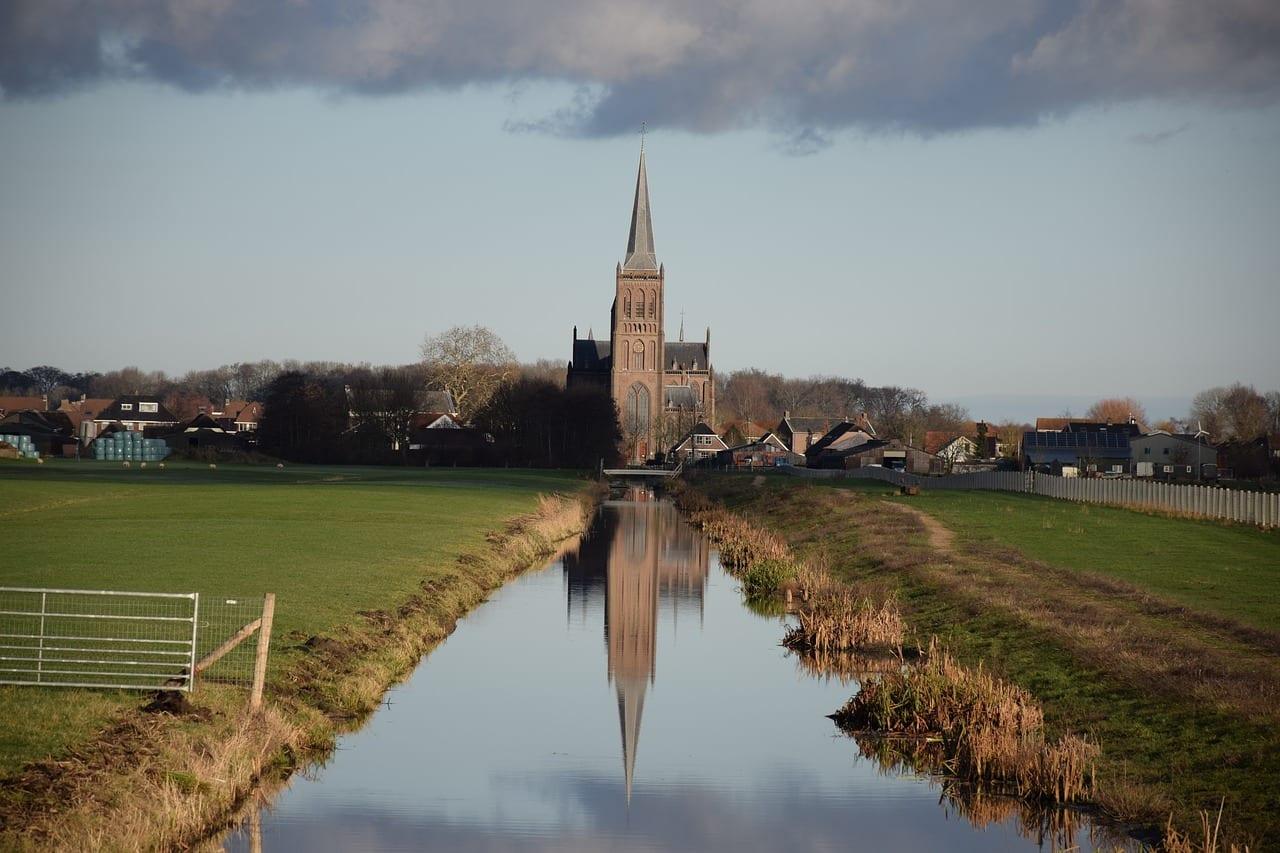Churches appear to be less indispensable to small communities than they themselves are inclined to think. The Dutch Catholic weekly Katholiek Nieuwsblad reached that conclusion after long-term research into the effects of church closure on village communities.
The research of the Dutch Catholic weekly shows, among other things, that the pace at which churches are disappearing from the countryside will only increase in the coming years. It often results in painful closures or mergers, but the local village communities also seem to recover surprisingly quickly.
The various social functions of the parishes are often taken over by local social organizations without much ado, according to Katholiek Nieuwsblad. What has also became clear is that very few parishioners decide to attend Mass in another church after theirs has been closed.
‘Uncomfortable conclusion’
The newspaper’s editor-in-chief Anton de Wit speaks of “a rather uncomfortable conclusion” for the community of faithful: “The village in 2020 can do very well without a church.”
In the first year of the research editors of the magazine spoke with dozens of scientists, policymakers and experts in the matter.
Some important findings from the research so far:
– The decline in church attendance has not yet reached its lowest point in the Netherlands; the big wave of church closures is yet to come.
– There are major regional differences within in the country: Especially in the traditionally Catholic regions in the south of the Netherlands (the provinces of Noord-Brabant and Limburg) a sharp decline can be seen.
– There are no significant social implications of church closures in rural municipalities; other organizations take over the different tasks of the parish.
– The willingness of people to attend Mass in another church nearby is shockingly low. Church closure is not only the result of people leaving the Church, but as a result of a church closing more people decide to leave the Church.
‘Dutch have been spoiled’
However, church closures are inevitable, said Paul van Geest, professor of church history and history of theology at Tilburg University.
“The fact that every neighborhood in the Netherlands used to have its own church is an exception worldwide. The closing of churches is a logical consequence of the fact that the church no longer is a binding factor in Dutch society,” he said.
According to religious sociologist Theo Schepens, people in the Netherlands have been “spoiled” with so many churches close by.
“That cannot be sustained. If, after a merger, people don’t want to go to a church in a village close by, there is apparently little need for the church,” Schepens said.
However, that doesn’t mean that the Catholic Church in the Netherlands is on its last legs. Van Geest points out that Christianity always takes on new forms.
“The situation is much more multiform in the Netherlands. It is changing, but you should also try and see that. In the Caecilia parish in Rotterdam, for example, they have invited the migrant communities to celebrate Mass in their church building,” he said.
A fresh outlook is needed
Rik Torfs, a professor of church law at the Catholic University of Leuven in Belgium believes it’s important that the Church continues to approach people “with a fresh outlook” and doesn’t get too caught up in organizational matters.
“One of my students is a pastor and decided to start house-to-house visits in his parish, which were completely out of fashion there. He visited people who said they didn’t need him, but with whom he subsequently had a three-hour conversation,” he said.
“Despite the clumsy way in which churches tend to spread their message, I think that the content of the message is so strong that at some point it will receive more attention,” said Torfs. “We just have to believe in it ourselves. Because who will want to become a member of a club that only talks about reorganization and downsizing? That’s not attractive.”
Why Dutch churches need to close
According to the Dutch research institute KASKI, the number of people who call themselves Catholic has fallen by 20 percent in the last fifteen years alone, while the number of churchgoers at weekend services has dropped by 60 percent and the number of parishes by 55 percent. About one in five Dutch people (3.7 million) still see themselves as Catholic; however, less than 5 percent of them (153,800 people) regularly attend Mass.
This article was written exclusively for Crux and translated by Susanne Kurstjens-van den Berk.
Crux is dedicated to smart, wired and independent reporting on the Vatican and worldwide Catholic Church. That kind of reporting doesn’t come cheap, and we need your support. You can help Crux by giving a small amount monthly, or with a onetime gift. Please remember, Crux is a for-profit organization, so contributions are not tax-deductible.













